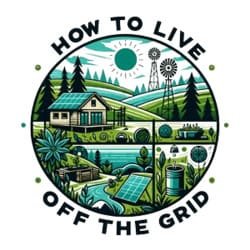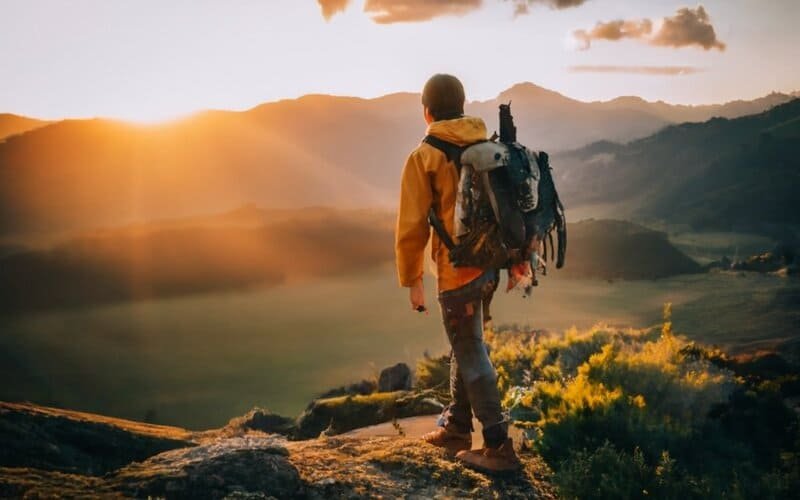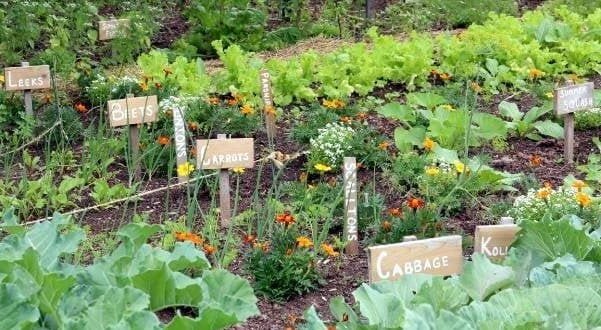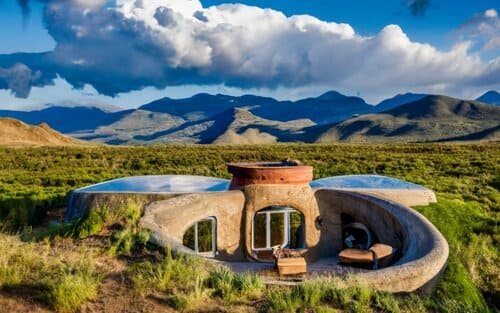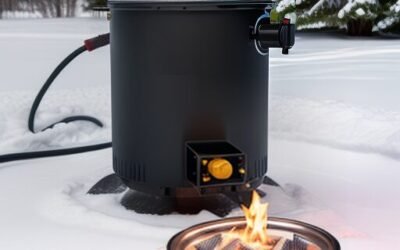15 of the Best States to live Off Grid
Choosing the best states to live off the gridLiving off the grid is becoming an increasingly popular lifestyle choice for people seeking independence, affordability, and sustainability. As more people look to go off grid, certain states rise to the top as ideal locations to establish completely self sufficient homesteads. This article outlines the 15 best states for off grid living based on climate, property availability, regulations, resources and other essential factors.
What Makes a State Ideal for Off Grid Living?
When evaluating which states enable thriving off grid lifestyles, several critical elements come into play:
- Favorable laws and regulations – Some states restrict off grid living through building codes, utility requirements and zoning laws. Others allow and support it.
- Affordable rural land – Cheap plots of land in remote areas provide opportunity for fully disconnected homesteads.
- Ideal climate conditions – Mild climates, abundant rainfall and long growing seasons enable self sufficiency.
- Renewable energy potential – Solar, hydro, wind and geothermal viability factor into a state’s off grid appeal.
- Tax incentives and exemptions – States that offer tax breaks and incentives for off grid living remove financial hurdles.
- Established off grid communities – Like-minded communities provide camaraderie, expertise and resources for thriving off grid.
When all these factors align, establishing successful off-the-grid homesteads becomes more feasible. With the right location, going off the power grid and living self-sufficiently can be deeply rewarding.
The 15 Best States for Off Grid Living
Living off-the-grid is becoming increasingly popular for people seeking freedom, affordability, and sustainability. This article dives into the 15 top states that enable thriving off grid lifestyles hopefully helping you to to find the off-grid property of your dreams.
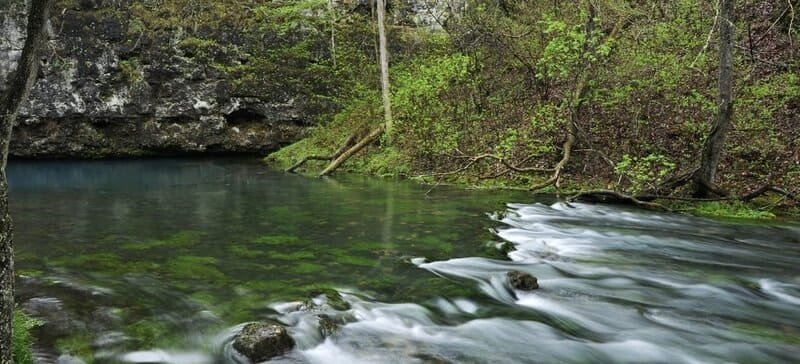
1. Missouri
Missouri is the #1 state for off grid living thanks to its optimal conditions is possible best state to live. With thousands of acres of inexpensive rural land and limited zoning restrictions outside of city jurisdictions, Missouri provides prime opportunities to establish completely self-sufficient off the grid homesteads.
The state has a low cost of living and property taxes compared to much of the country. Missouri’s four distinct seasons enable a diverse range of farming and livestock activities to achieve food independence. Abundant forests, lakes, rivers and streams offer renewable water sources. Minimal statewide oversight on off grid construction enables building your own sustainable shelters. Missouri’s climate with warm summers and cold winters necessitates resilience. Existing off-grid communities provide camaraderie and expertise for newcomers. With its accommodating conditions, Missouri is the premier location to embrace off-grid living.
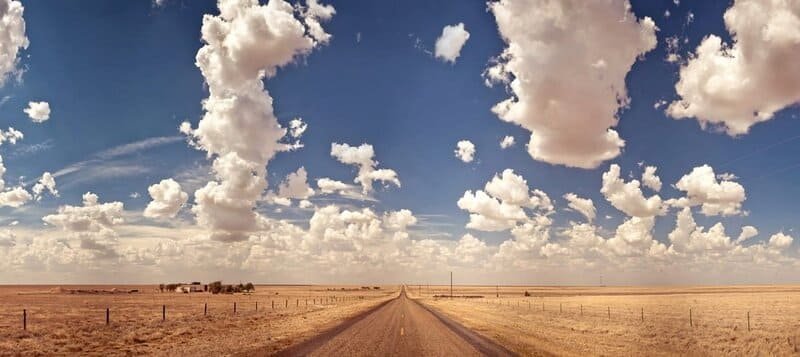
2. Texas
From its scenic Hill Country to sprawling desert basins, Texas’ varied geography provides many locations conducive to off-grid living. Texas has no state income tax and low property taxes in rural areas make buying affordable land tracts appealing. With modest state wide building codes, establishing your own off grid structures is achievable. Texas’ hot climate enables year-round farming and livestock activities to achieve food self-sufficiency. Solar and wind energy potential is high across the state’s sun-drenched expanses and gusty plains. Texas also offers incentives for renewable energy as well as exemptions for off-grid rainwater collection. For people wanting to live sustainably off the electrical grid, Texas provides ideal conditions for people living off grid.
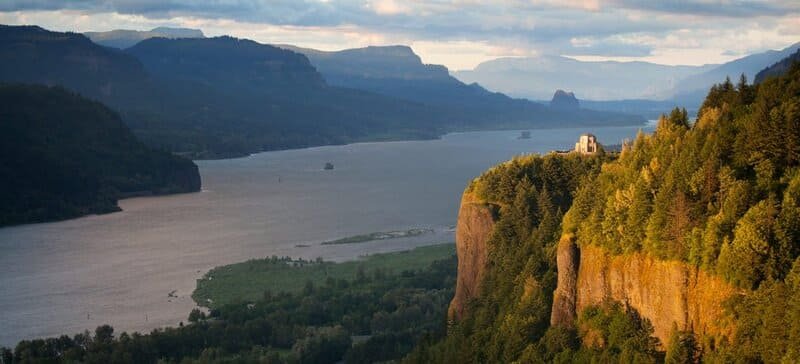
3. Oregon
Oregon is one of the most popular destinations for off grid living, with over 25,000 off-grid homes already established. The state’s mild west coast climate, abundant forests and rivers, and wealth of public lands create prime conditions to live self-sufficiently off the grid. Inexpensive rural plots are available across the state with minimal zoning restrictions outside of cities. Oregon’s solar incentives and lax statewide building codes accommodate the construction of unique off grid homesteads…
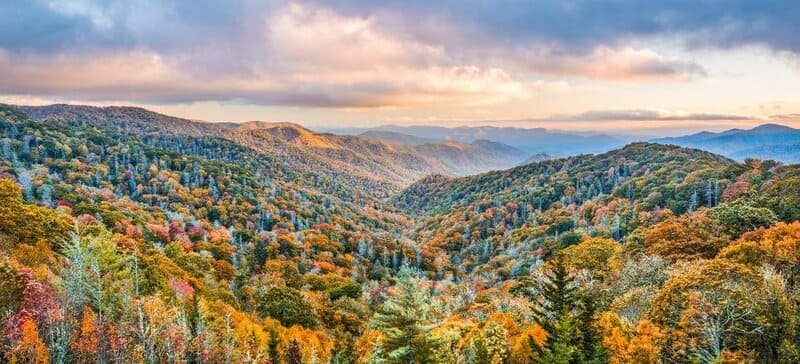
4. Tennessee
Tennessee boasts thousands of acres of inexpensive rural land outside major cities where zoning laws are lax, enabling the construction of off-grid homesteads. The state has a lengthy growing season and mild climate well-suited for agriculture and livestock. Lakes and forests across provide abundant natural resources. With no state income tax and reasonable property taxes in rural locales, Tennessee offers an affordable cost of living. The state’s “Freedom to Farm Act” is one of the nation’s most accommodating for completely self sufficient off grid lifestyles. For these reasons, Tennessee ranks highly as a prime destination for off-grid living.

5. Alabama
In Alabama, large swaths of unincorporated rural land have minimal building oversight, making constructing your own off-grid structures achievable. Property taxes and cost of living are low. The climate features hot summers and mild winters amenable to year-round cultivation. Rivers, forests and lakes offer sustainable water sources. Solar and wind potential is modest but workable for off-grid power needs. Additionally, Alabama has an established network of off-grid communities, events and resources to help guide newcomers. With its hands-off zoning, hospitable climate and inexpensive land, Alabama holds major appeal for off grid living.
6. Arkansas
Arkansas emerges as an ideal state for off-grid living thanks to plentiful inexpensive rural acreage with limited zoning restrictions in unincorporated areas. This enables constructing unique off-grid homesteads. The humid subtropical climate provides ideal conditions for growing food and livestock year-round when living off the grid. Solar potential is modest. However, ample rivers, streams, and rainfall can support water independence. Low taxes and absent income tax create an affordable environment. With minimal red tape, abundant resources and a hospitable climate, Arkansas offers a prime destination to establish your self-sufficient off grid home.
7. Kentucky
In Kentucky, rural land is very affordable while building codes are lenient outside of cities, facilitating unique off-grid dwelling construction. The temperate climate with four distinct seasons necessitates adaptability but allows for year-round cultivation. Kentucky’s wealth of rivers, lakes and rainfall can support water self-sufficiency. Wind and solar potential are modest. However, sustainable hydropower is harnessed state wide as an off-grid electricity option. Kentucky’s hands-off regulatory environment, low cost of rural living and wealth of natural resources make it highly suited for off grid lifestyles.
8. Hawaii
Hawaii’s tropical paradise setting creates an unparalleled environment for off grid living. While expensive, vast swaths of the Hawaiian islands are rural and off-grid living is common…
9. Montana
Montana’s rugged terrain and low population density leave vast portions isolated and ideal for off-grid arrangements. Minimal building codes in unincorporated areas enable establishing your own off-grid structures. While winters are bitterly cold, the payoff is supreme self-reliance. Low property taxes provide affordable living. Solar and wind energy potential are high as supplementary power sources. Geothermal resources can also be harnessed for off grid use. Montana’s vast swaths of uninhabited land allow ultimate freedom to live off the grid away from society’s rules and restrictions. For die-hard off grid enthusiasts, Montana is a prime destination.
10. New Mexico
New Mexico boasts over 310 days of sun annually, creating tremendous solar power generation potential. The state even has laws protecting solar rights. In addition, New Mexico enables self-provision of water and utilities, facilitating off-grid arrangements. Wide-open rural spaces with few zoning laws provide opportunities to construct unique off-grid shelters and homesteads. The high desert climate allows for year-round cultivation. With few hurdles to living off grid using solar power and well water, New Mexico offers ideal conditions for energy and water independence.
11. Michigan
Michigan has thousands of acres of inexpensive rural land outside incorporated towns where zoning rules are minimal. This allows construction of your own customized off-grid dwelling. Four distinct seasons necessitate adaptation but enable activities like growing food and raising livestock year-round. Michigan’s abundance of freshwater sources including groundwater, lakes and rivers provide off-grid water supply options. Existing communities provide camaraderie and guidance for going off the grid. For these reasons, Michigan is highly accommodating for off grid living.
12. Idaho
Idaho’s sparsely populated rural expanses offer space, privacy and freedom to establish off grid homesteads. With lax building codes and permitting in unincorporated counties, Idaho enables self-sufficient dwellings. The state also imposes minimal taxes and oversight on off grid living. Long winters with heavy snowfall present challenges but make the payoff of freedom and self-reliance sweeter. Solar, hydro and geothermal energy can sustain off grid power needs. For people craving extreme independence, Idaho offers ideal conditions.
13. West Virginia
In West Virginia’s countryside, inexpensive plots of rural land present opportunities for disconnected off grid life. Building codes are reasonably lenient outside of cities. Property taxes remain low. The mountainous environment provides resources for water access, agriculture, hunting and foraging when living off the grid. Four distinct seasons demand preparation but enable self-sufficient homesteading activities year-round. Solar power potential is modest while hydropower resources are ample. For outdoorsy types seeking rural seclusion, West Virginia provides an optimal destination to establish your own off-grid homestead.
14. Wyoming
Wyoming’s rugged frontier landscape offers sweeping off-grid freedom. Building codes are essentially non-existent across the state’s vast rural areas. Property taxes are extremely low. The continental climate brings bitterly cold winters offset by warm, sunny summers ripe for cultivating food and generating solar power. Wyoming’s mountains, forests and grasslands provide opportunities for hunting, foraging and raising livestock. Hydropower, solar and wind can be harnessed for electricity needs. With few people and lax oversight, Wyoming provides the ultimate off-grid enthusiast’s destination. The challenges breed pure self-reliance.
15. Colorado
Colorado provides a prime balance of resources and accessibility for off-grid living. Unincorporated rural zones have minimal building restrictions, enabling unique off-grid housing. The sunny climate allows ample solar power generation. Wind and geothermal resources can provide supplementary renewable energy. Rainfall is scarce, but rivers and snowmelt offer water sources. The varied topography from mountains to plains enables different off-grid activities. While cold winters demand resilience, Colorado’s abundance of public lands offer hunting, foraging and places to unplug from society. The state’s long time embrace of sustainable living provides guidance for going off the grid. With ideal conditions and an experienced community, Colorado stands out for off-grid living.
Honorable Mentions
While the 15 states profiled rank as the best overall for off-grid living presently, several others also offer appeal:
Maine – Rugged terrain and lax rural building codes, abundant forests and coastline resources. Challenging winters offset by summers allowing food cultivation.
Vermont – Lenient building rules and property taxes, short growing season but maple syrup potential. Solar incentives.
Louisiana – Inexpensive wetlands acreage conducive to fishing, mild winters, and abundant rainfall.
Wisconsin – Cheap rural land, foraging and freshwater access, and farming viability offset severe winters.
South Carolina – Affordable land prices, warm climate and rainfall potential suitable for off-grid agriculture.
Finding Your Ideal Off Grid Location
While these 15 states provide the best conditions for off-grid living, finding your perfect off grid homestead location depends on personal factors too. Prioritize locations with:
- Available off grid power options you can leverage like solar, hydro, wind or geothermal
- Clean freshwater access from lakes, streams, wells or rain catchment
- Ability to support yourself through gardening, hunting, foraging or other food sources
- Comfortable average temperatures and seasonal conditions
- Established off grid communities who can provide guidance
- Tax incentives, exemptions or benefits to support off grid living
- Favorable laws allowing fully disconnected, self-sufficient arrangements
- Appeals to your personal preferences like landscape, activities and values
By selecting an ideal state and location within it based on critical factors like these, your future off-grid homestead can become a self-sustaining reality.
Preparing for an Off Grid Lifestyle
Transitioning to off-grid living takes knowledge, skills and preparation. Before establishing your off-the-grid homestead, make sure to:
- Learn about power options like solar, wind and geothermal that can enable self-sufficiency
- Research rain catchment, wells, streams and other water access methods
- Gain skills in gardening, hunting, foraging and food preservation
- Understand building methods and codes for your location
- Assemble tools, supplies and systems to provide utilities yourself
- Plan for safety, medical care, income and waste management
- Align expectations with the hard work and endurance off-grid living requires
- Join communities to exchange knowledge and support
With the right mindset, skills and location, embracing off grid living on your own sustainably-powered homestead can be truly rewarding. The independence, cost savings, and ecology are life-changing.
